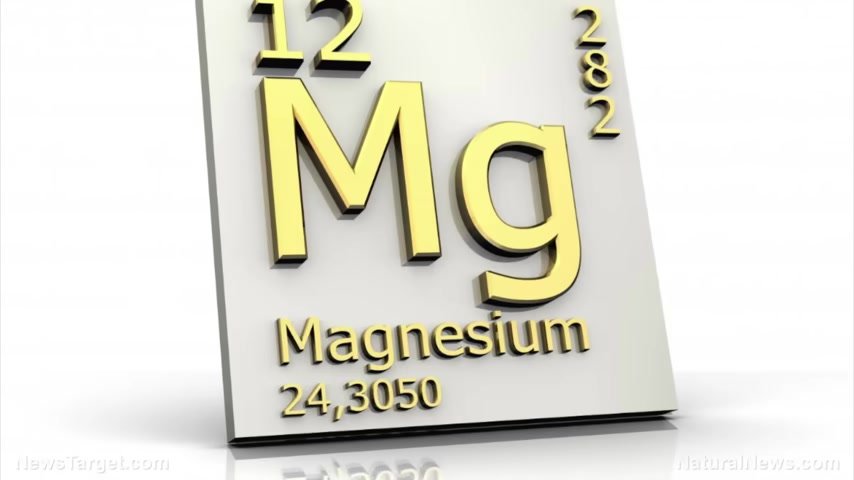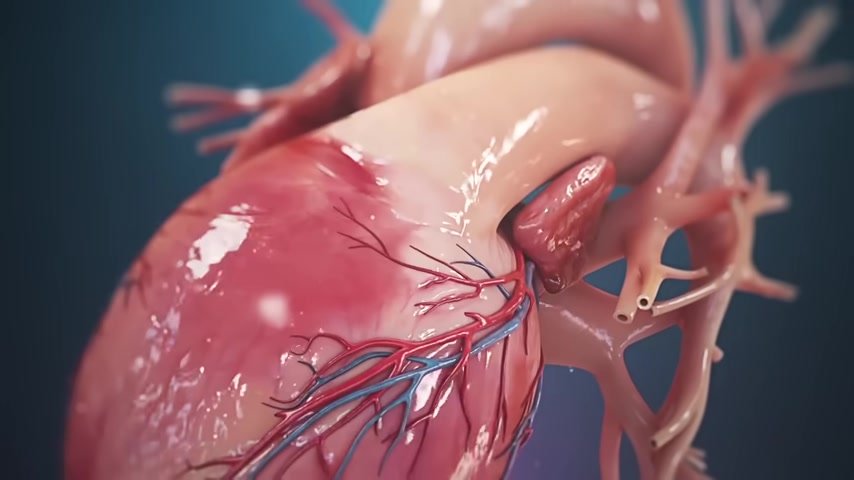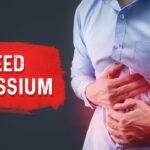Table of Contents
Discover why 57% of people are magnesium deficiency and the health risks associated with it. Learn about the causes, symptoms, and solutions to boost your magnesium levels naturally
Magnesium is a critical mineral involved in numerous bodily functions, from energy production and nerve impulse transmission to muscle relaxation and bone health.
Despite its importance, studies reveal that at least 57% of people are deficient in magnesium, often without realizing it.
This widespread deficiency can lead to various health problems, including muscle cramps, fatigue, anxiety, and even serious conditions like pathological calcification, where excessive calcium buildup occurs in cells. In this article, we delve into the reasons behind magnesium deficiency, such as poor dietary intake, processed foods, and gut health issues. Discover the symptoms of magnesium deficiency and learn how to boost your magnesium levels through diet and lifestyle changes to protect your health.
Magnesium benefits

So let’s chat about the most dangerous symptom of a magnesium deficiency .
As you may be aware of , magnesium is involved in over 300 biochemical reactions .
At least 57% , probably more people have low magnesium .
Magnesium is involved in energy protection , the transmission of nerve impulses , the ability to allow muscles to relax , blood sugar issues , and the list goes on and on and on .
What causes magnesium deficiency

Now several reasons why people are deficient .
Either they’re not getting it from their diet because they’re not eating the right things or they’re eating the wrong things like processed foods , carbohydrates , alcohol , and also inflammation in your gut .
Any type of , like , bloating or chronic inflammation in your gut , that can prevent your absorption of magnesium .
And you have something called phytates that prevent the absorption of magnesium as well .
Fluoride blocks magnesium .
Soft water versus hard water blocks magnesium .
In fact , they’ve done tests on this .
There’s a high correlation between people that have these water softeners and a higher risk of getting heart attacks versus people who just drink hard water , spring water , things like that .
They have a much lower risk of heart problems .
And then you have just all the food additives , very specifically the phosphates in the food additives .
And you probably see it when you start reading the labels on ultra processed foods .
But I wanna cover 12 symptoms of a magnesium deficiency starting with number 12 and working backwards until we get to the most dangerous symptom , which you need to know about .
Symptoms of magnesium deficiency

Number 12 , muscle cramping .
Number 11 is loss of appetite .
Number 10 is nystagmus , where your eye is kind of going back and forth .
Number 9 is fatigue .
Number 8 , high blood pressure .
Number 7 , abnormal heart rhythm .
Number 6 , low vitamin d .
It’s interesting .
You need magnesium to help vitamin d work in the body .
Number 5 , a potassium deficiency .
You need magnesium to allow for potassium to work in the body .
Number 4 , migraines .
Number 3 , blood sugar issues .
Number 2 , high levels of cortisol , which is gonna affect your sleep .
The most dangerous magnesium deficiency symptom

But number 1 , the most dangerous symptom of low magnesium is pathological calcification .
Let me explain what that is .
Magnesium is the master mineral that controls other minerals .
Magnesium stops calcium from building up in the cells .
If there’s too much calcium in the cell , it causes the cell to commit suicide .
Magnesium also prevents oxidative stress from occurring in the mitochondria , but that can be related to neuroinflammation in the brain , which also involves accumulation of calcium as well .

I’m talking about the calcium that builds up in the heart tissue that can cause a heart attack .
I’m also talking about the pathogenic calcification that can build up in other soft tissues too because you have vascular calcification , and then you have nonvascular calcification .
Both scenarios have calcium building up in the wrong place because the calcium should be in the bone , not in your soft tissues .
And I’ve talked about vitamin K2 helping protect against calcium building up in the arteries , but you don’t wanna forget about this magnesium .
It’s also important .
Now when we’re talking about this pathological calcification , we’re really talking about a calcification that is not normal .
It usually follows inflammation , and some of the key factors that help regulate this and prevent it is magnesium , vitamin k 2 , zinc , vitamin d , and boron .
key Points:
Magnesium deficiency can occur if you’re not getting enough magnesium from your diet or if you’re consuming processed foods, carbohydrates, or alcohol. Gut inflammation, phytates, fluoride, phosphates, and soft water interfere with magnesium absorption.
Signs of a magnesium deficiency include the following:
- Muscle cramping
- Loss of appetite
- Nystagmus
- Fatigue
- High blood pressure
- Abnormal heart rhythm
- Low vitamin D
- Potassium deficiency
- Migraines
- Blood sugar issues
- High levels of cortisol
- Pathological calcification
- Pathological calcification is the most dangerous symptom of magnesium deficiency. Magnesium stops calcium buildup in your cells. If there’s too much calcium in the cell, it will self-destruct. Magnesium also helps prevent oxidative stress from occurring in the mitochondria.
- Calcium buildup can lead to several problems, including heart attack, neuroinflammation in the brain, and inflammation in other parts of the body. Magnesium, vitamin K2, zinc, vitamin D, and boron may help prevent calcification of the soft tissues.
DATA:
https://pubmed.ncbi.nlm.nih.gov/7786694
https://www.ncbi.nlm.nih.gov/pmc/articles/PMC5794996
https://www.nature.com/articles/s42003-023-05247-6
https://www.mdpi.com/1422-0067/24/1/223
https://link.springer.com/article/10.1007/s10534-021-00328-7
https://www.ahajournals.org/doi/full/10.1161/atvbaha.117.309182
FAQ:
What are the main symptoms of magnesium deficiency?
Magnesium deficiency, also known as hypomagnesemia, can manifest in several ways. Common symptoms include muscle cramps, fatigue, nausea, vomiting, loss of appetite, and weakness. Severe deficiency may cause numbness, tingling, seizures, personality changes, and abnormal heart rhythms.
What are the symptoms of hypomagnesemia?
Hypomagnesemia, or low magnesium levels, typically presents with muscle twitches, tremors, cramps, fatigue, and general weakness. In more severe cases, it can lead to abnormal heart rhythms, seizures, and changes in personality or mood, such as anxiety and depression.
What are the symptoms of magnesium deficiency in PPI?
Proton Pump Inhibitors (PPIs) can contribute to magnesium deficiency. Symptoms in individuals taking PPIs may include muscle cramps, fatigue, weakness, dizziness, confusion, and abnormal heart rhythms. It’s crucial to monitor magnesium levels if you’re on long-term PPI therapy.
What are the symptoms of too much magnesium?
Excessive magnesium, often due to over-supplementation, can cause diarrhea, nausea, abdominal cramping, and, in severe cases, heart issues, low blood pressure, and respiratory distress. Always consult a healthcare provider before taking high doses of magnesium supplements.
Weird magnesium deficiency symptoms
Unusual symptoms of magnesium deficiency can include tingling or numbness, personality changes, irregular heartbeats, and muscle spasms. Additionally, some people may experience restless leg syndrome, insomnia, or eye twitches.
Magnesium deficiency symptoms in females
Women may experience magnesium deficiency with symptoms such as menstrual cramps, hormonal imbalances, migraines, fatigue, and mood swings. Additionally, they may suffer from muscle cramps, insomnia, and anxiety.
11 warning signs of magnesium deficiency
- Muscle cramps
- Fatigue
- Weakness
- Nausea and vomiting
- Loss of appetite
- Numbness and tingling
- Abnormal heart rhythms
- Personality changes
- Seizures
- Tremors
- Insomnia
How to test for magnesium deficiency at home
At-home testing for magnesium deficiency typically involves blood spot tests or urine test kits available online or at pharmacies. These kits can be used to collect a sample that is then sent to a lab for analysis. Always follow up with a healthcare provider for comprehensive evaluation and diagnosis.
Magnesium deficiency treatment
Treatment for magnesium deficiency often includes dietary changes to include more magnesium-rich foods, such as leafy greens, nuts, seeds, and whole grains. Oral magnesium supplements may also be recommended by a healthcare provider. In severe cases, intravenous magnesium may be necessary.
What are the 10 signs of low magnesium?
- Muscle cramps
- Fatigue
- Weakness
- Nausea
- Vomiting
- Loss of appetite
- Numbness and tingling
- Abnormal heart rhythms
- Personality changes
- Seizures
Magnesium deficiency diseases
Magnesium deficiency is linked to several health conditions, including osteoporosis, hypertension, cardiovascular diseases, type 2 diabetes, and migraines. Chronic low levels of magnesium can also contribute to mental health issues such as anxiety and depression.
Can low magnesium kill you?
Severe magnesium deficiency can be life-threatening. It can lead to serious health issues such as heart arrhythmias, seizures, and respiratory failure. If you suspect you have a severe magnesium deficiency, seek medical attention immediately.




